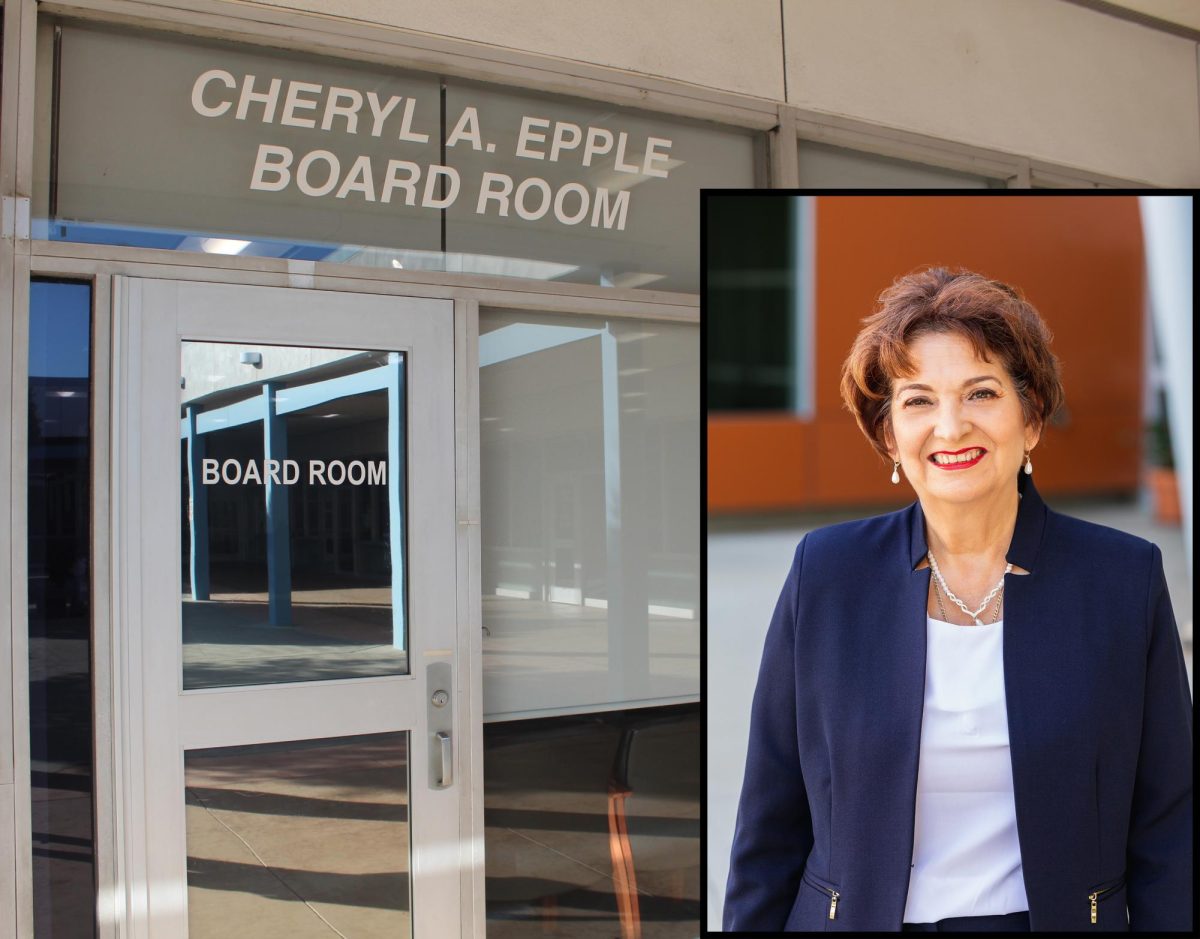Cerritos College president Dr. Linda Lacy calls this school year ‘the year of recovery’ as aspirations for superior educational planning, remaining fiscally strong, reducing textbook costs and preparation for the upcoming accreditation, among other things, were discussed during the college’s annual Convocation at the Burnight Center Theater on Thursday, Sept. 19.
“It was very informative,” David Betancourt, coordinator of the Cerritos College Center of Teaching Excellence, said.
“You become invested in your day to day teaching in the classroom and it’s nice to be here, sit back and know what’s happening in the big picture here on campus.”
Talks of change and steps in the right direction echoed throughout the theater, as faculty and representatives of Cerritos College each had time to share their plans and concerns around campus, most prominently being financial concerns.
Lacy explained that in the past three years, the college has lost 16 million dollars from a 90 million dollar budget and, during this time, classes and services were cut.
“The reason we say this is the year of recovery is because Proposition 30 has passed and we’re not making cuts anymore,” Dr. JoAnna Schilling, vice president of Academic Affairs, said.
“The last few years, all we’ve had to do is cut, so this year what we’re looking to do is to create clear pathways and educational plans for students so they can know how to reach their goals.”
Added Lacy, “We’re still far away from where we want to be, but we’re making great progress toward our goals with little steps at a time.”
Creating clear pathways for students toward their degrees was a point addressed during the convocation, in addition to reducing textbook costs, as the price has risen by 186 percent, and finding alternatives such as e-books or open education programs.
Schilling said, “We want an educational plan that tells you the courses you need to take and makes suggestions for your general education so once a student signs on for a particular plan, we can make sure that we schedule the classes and make sure the students actually obtain what they are looking for.”
The open education program would allow students to purchase books at a discount, in addition to increased access for the material, as one would be able to access the information through TalonNet.
Business administration professor Robert Livingston said, “The average cost for a textbook that isn’t part of the open education program is 205 dollars and the average cost for a textbook that is a part of the program is 19 dollars. The program is being run very responsibly.”
The upcoming accreditation also came up as issues from the previous evaluations were said to be addressed.
A timeline of events was displayed, showcasing when things were to take place, such as a final report being submitted in December, the accreditation committee visiting campus in March and a response from the ACCJC in June.
Construction around campus was mentioned with news that the new Liberal Arts Building is scheduled for completion by the summer of 2014 and the relocation of the Child Development Center will be taking affect April 2014.
“The tax money here in the Cerritos community helps fuel the construction you see here on campus,” Schilling said. “All the construction here is being funded from our last bond, which is Measure CC and is finishing up, and our new bond, which is Measure G.”
She added, “That has actually been easier than funding from the state, which funds classes, and that’s where I think it gets confusing because students see all of the buildings going up and we’re cutting classes. The problem is that we’re getting money for one thing, but we can’t use it for something else.
“What you see around you is going to make a huge difference and now we need to make sure we have the classes the students need inside of these buildings.”
Improvements in the Human Resources department are also being made.
Vice president of Human Resources Mary Anne Gularte said, “We’re looking to better our process and procedures and utilize technology to improve our services.
“We’re soliciting feedback and input from the entire campus on how we can improve and provide better service for the college.”
There were many positives in the convocation, but the financial problems are not going to just go away as Livingston noted.
“I think the question long-term for education is complex and it’s going to take some time to work it out. It’s a moving target, there are so many things going on. Not just here in California, but nationally.”
Betancourt believes that one should not be discouraged and to move forward.
“This is the first year, in three years, where we’re not getting that message, ‘get ready, here we go again.’ Now we’re able to give a sigh and go, ‘OK, it feels like we can start rebuilding again.’”
He added, “The school’s priority is one priority, student success. Everything here revolves around that.”









